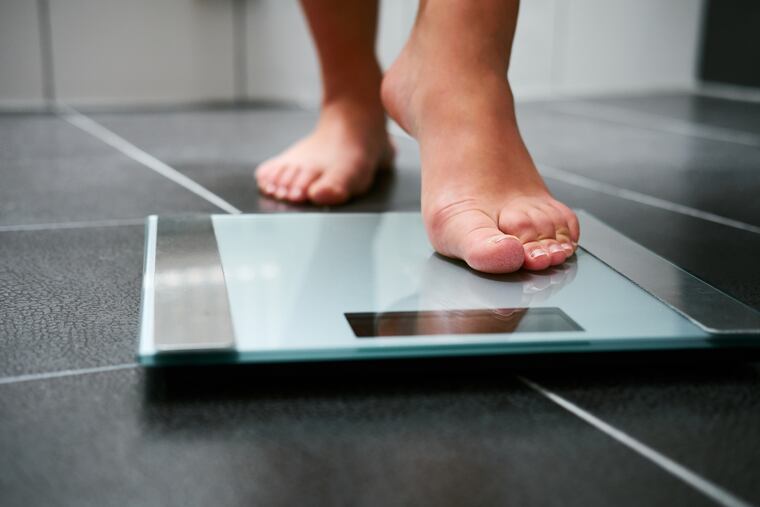Scared of the scale? 5 things to consider before you weigh yourself.
Here are some guidelines to follow to ensure you have a healthy relationship with the scale.

Lurking in the shadowy corner of the fitness floor lives one of the most menacing machines: the almighty scale. For many, the thought of stepping on a scale is more sweat inducing than any cardio machine. And when you think of just how much weight we give to the number displayed on the dial, it’s no surprise that so many are scared of the scale.
If you’re someone who usually dodges this device, hopping on only during an annual physical, anticipating those magic digits can feel a lot like waiting for your lottery numbers to be announced.
It’s common to connect weight to a feeling of triumph or failure. Which makes for an important question: Is the scale a valuable and necessary tool for assessing physical health, or should we part ways with it?
Here’s a quick way to determine whether this calculating contraption is a good choice for you, and some simple tips for scaling back your worry when using it:
Friend or foe. It’s strange how a number can have such an impact on your self-esteem. When the scale works in your favor, there is a sense of success and accomplishment. However, if the scale hits less than desirable digits, we tend to feel sad, ashamed, and even discouraged.
In order to achieve weight-loss and weight-maintenance goals, as well as establish exercise adherence and prolonged healthy behaviors, you must feel positive about the experience. If the scale summons negative thoughts, this is not the right weight-gauging gadget for you.
Instead, let your daily healthy habits serve as your measurement for success. If you exercise the recommended 30 minutes a day, five days a week, are eating well, sleeping soundly, and feel physically and mentally fit, then that is the best measure of your progress.
Alternatively, if you are an avid scale supporter and must know your weight in order to hold yourself accountable to your goals, then you’ve found a tool that works well for you. With that said, it is very easy to become obsessed with weighing in.
Here are some guidelines to follow to ensure you have a healthy relationship with the scale:
1. Use the scale once a week: Pick a day, preferably at the beginning of the week, to weigh yourself. There is no need to measure yourself following a late-night slice of pizza or after a bowel movement. This teeters on obsessive behavior and is an extremely unhealthy pattern for monitoring your weight.
If you find yourself compulsively checking your weight, consult your physician.
2. Get in a rhythm: If you own a scale, remove your clothing and step on first thing in the morning. If you use your gym’s scale, weigh yourself before exercise and in a similar set of clothes each time. This will allow you to create a somewhat accurate assessment of your weekly weight, rather than dealing with daily fluctuations from food and fluids.
3. Be aware of misleading measurements: It’s important to remember that no two scales are the same. Some are calibrated differently, and most don’t take into consideration fluid retention, body fat percentages, and muscle mass.
Keep in mind, a pound is equal to 3,500 calories. That means you’d need a daily deficit of 3,500 calories to lose one pound a day. This is not only unrealistic, it’s dangerous. A safer, healthier goal would be to cut about 500 calories from your daily diet to lose about one or two pounds for the week.
You can easily slash calories by choosing water over soda or sugary juices and nixing late-night snacks. This along with exercise is a winning formula for fat loss.
4. Substitute the scale: Body measurements and clothing also work well in assessing weight goals. Your clothes don’t lie. If your jeans feel snug or difficult to button, it’s safe to assume you’ve gained weight. If you have put on a few extra pounds, do not discard these items. Rather, use your pants as a motivator to return to a weight at which they fit comfortably.
The best way to tilt the scale in your favor is by making your lifestyle one of healthy habits.
Ashley Blake Greenblatt is a certified personal trainer and wellness coach. To learn more about her virtual training program, visit ashleyblakefitness.com.